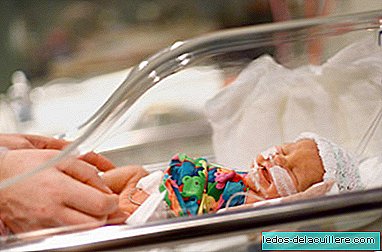
Every year 15 million premature babies are born in the world, and about a million of them fail to survive. According to data from the Spanish Society of Neonatology, premature births in our country have increased 36% in the last 20 years, and although thanks to the increasingly premature medical and scientific advances, there is still a long way to go.
A team of scientists led by researchers at Stanford University has developed a test that it allows to know if the delivery will take place before term only with a sample of blood from the mother. The accuracy of the new blood test is between 75 and 80 percent.
According to Mads Melbye, co-author of this research published in the journal Science
"We have identified a group of genes that are highly predictive when it comes to identifying which women are at risk of giving birth prematurely. The truth is that I have been trying to understand premature births for many years, and this is the first real advance and scientifically significant that is achieved in a long time. "
Genes announcing prematurity
To carry out the investigation, they took blood samples from 31 Danish women who had a blood sample drawn each week throughout their pregnancy. After identifying nine extracellular RNA (ribonucleic acid) produced by the placenta, they created a statistical model that allowed them to predict the gestational age of the baby with an accuracy of 45 percent (on ultrasound it is 48%, but it is a more expensive system). They also found new information about fetal growth. None of these women gave birth prematurely.
Later, they analyzed the blood samples taken during the second or third trimester of pregnancy to 38 American women at risk of giving birth prematurely, either because they had previous preterm births or early contractions. Of these, 13 gave birth before term.
When analyzing the samples of the latter identified levels of extracellular RNA from seven genes of the mother and placenta They can predict which pregnancies will end in preterm birth with an accuracy of 75-80%.
Although the sample of women is still very small and is in its early stages, research opens the door to be able to find the biological mechanisms behind premature births and avoid them, even develop drugs that help delay them.












